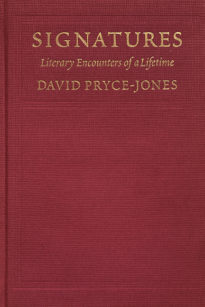Excerpted from a review in the Wall Street Journal by Joseph Epstein.
“There will always be an England,” once the safest of safe generalizations, is now in need of serious qualification. An England doubtless there always will be, but England today is sadly diminished from the England that once bred Anglophiles round the world, myself among them. This earlier England was known for its courage, its elegance, its grandeur. This was the England that in the past century produced Winston Churchill, Evelyn Waugh, Rebecca West, Hugh Trevor-Roper; the England whose traditions, in dress, wit, intellectual life, were admirable in so many ways.
“The vieille Angleterre, the civilised aristocrats, the marvellous novelists and poets, the urbane, cultivated statesmen—that England, believe me, is no more.”
Writing to Svetlana Alliluyeva, Stalin’s daughter, Isaiah Berlin in 1980 noted that “the vieille Angleterre, the civilised aristocrats, the marvellous novelists and poets, the urbane, cultivated statesmen—that England, believe me, is no more.” The England of today, alas, seems more than a touch shabby, dull, dreary, symbolized by those two knights of woeful countenance, Sir Mick Jagger and Sir Elton John. And let us not forget Jeremy Corbyn, until recently the leader of the British Labour Party, not yet knighted but deeply benighted in so many of his views.
David Pryce-Jones’s “Signatures” is a work organized round its author’s memories of men and women he has encountered over the years who wrote and signed copies of their books for him. The book is in many ways a stirring reminder of an earlier England. Readers of “Fault Lines,” one of Mr. Pryce-Jones’s previous books, learned that, in a reversal of the lyric to “Summertime,” the author’s mother was rich (there were Rothschild cousins) and his father was, along with being the editor of London’s Times Literary Supplement, good-looking. Much of his mother’s family wealth was lost in the maelstroms of the past century’s two monstrous totalitarianisms—Nazism and Soviet communism—and his father’s literary eminence now seems faded. Yet David Pryce-Jones, who went to Eton and thence to Magdalen College, Oxford, gained through his parents both a cosmopolitan outlook and many useful connections.
“The book is in many ways a stirring reminder of an earlier England.”
A literary man and intellectual-of-all-work, Mr. Pryce-Jones has published nine novels as well as books on, among other subjects, the Arab world, the death of Soviet communism and Paris under the German Reich, as well as books about Evelyn Waugh, Cyril Connolly, Unity Mitford and Graham Greene. He has been on the editorial staff at Time and Tide, the (London) Spectator and the Daily Telegraph. Along the way he acquired the highly polished prose style of English higher journalism at its best: a style that never condescends, can be richly allusive and is often studded with stinging irony. Now in his 80s, David Pryce-Jones does not himself quite qualify as an Englishman of the older England but is, as “Signatures” amply demonstrates, a man who knew many of the last of its impressive denizens.
“Signatures” offers 90 portraits, some as brief as a single paragraph, a few as extensive as six pages, of notable men and women, most of them from the England before the fall. Among them are portraits of W.H. Auden, Sybille Bedford, John Betjeman, Robert Conquest, Aldous Huxley and Muriel Spark. Those born elsewhere who shored up in England and whom Mr. Pryce-Jones writes about here include Svetlana Alliluyeva, Elie Kedourie, Arthur Koestler, Walter Laqueur and George Weidenfeld. There are also portraits of various lengths of Saul Bellow, Bernard Berenson, Milovan Djilas, Ernst Jünger, Iris Origo, Isaac Bashevis Singer, Albert Speer and others. All are immensely readable.
“Most of these portraits are genial; some deeply admiring; a few disdainfully dismissive.”
In some of these portraits Mr. Pryce-Jones’s relationship with the figure was that of journalist to subject; in others close friendship was entailed. He tells us, for example, that he accompanied V.S. Naipaul and his wife to Stockholm when Naipaul won the Nobel Prize. Mr. Pryce-Jones was also the recipient, as was I, of the charming anecdotes and amusing gossip of John Gross, another of his portraits. Most of these portraits are genial; some deeply admiring; a few disdainfully dismissive. The critic Alfred Kazin, whom Mr. Pryce-Jones met at the Century Club in New York, gets a portrait of a mere paragraph, long enough to establish his, Kazin’s, pathetic insistence on his own status. On the other side of the ledger, in the shortest entry in the book, the author writes of the classicist Michael Grant that his many books “seem to be potboilers only because he had a gift for making scholarship look easy.”
Read the full review at The Wall Street Journal.
